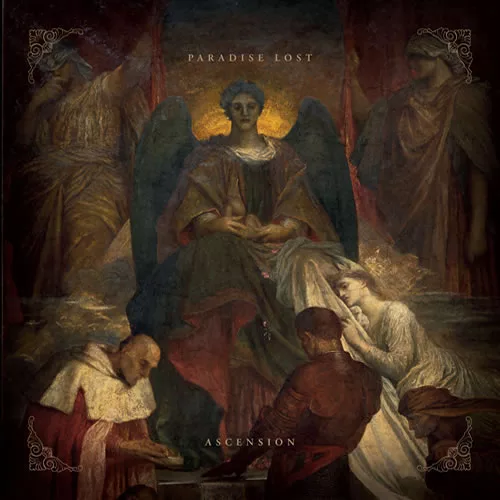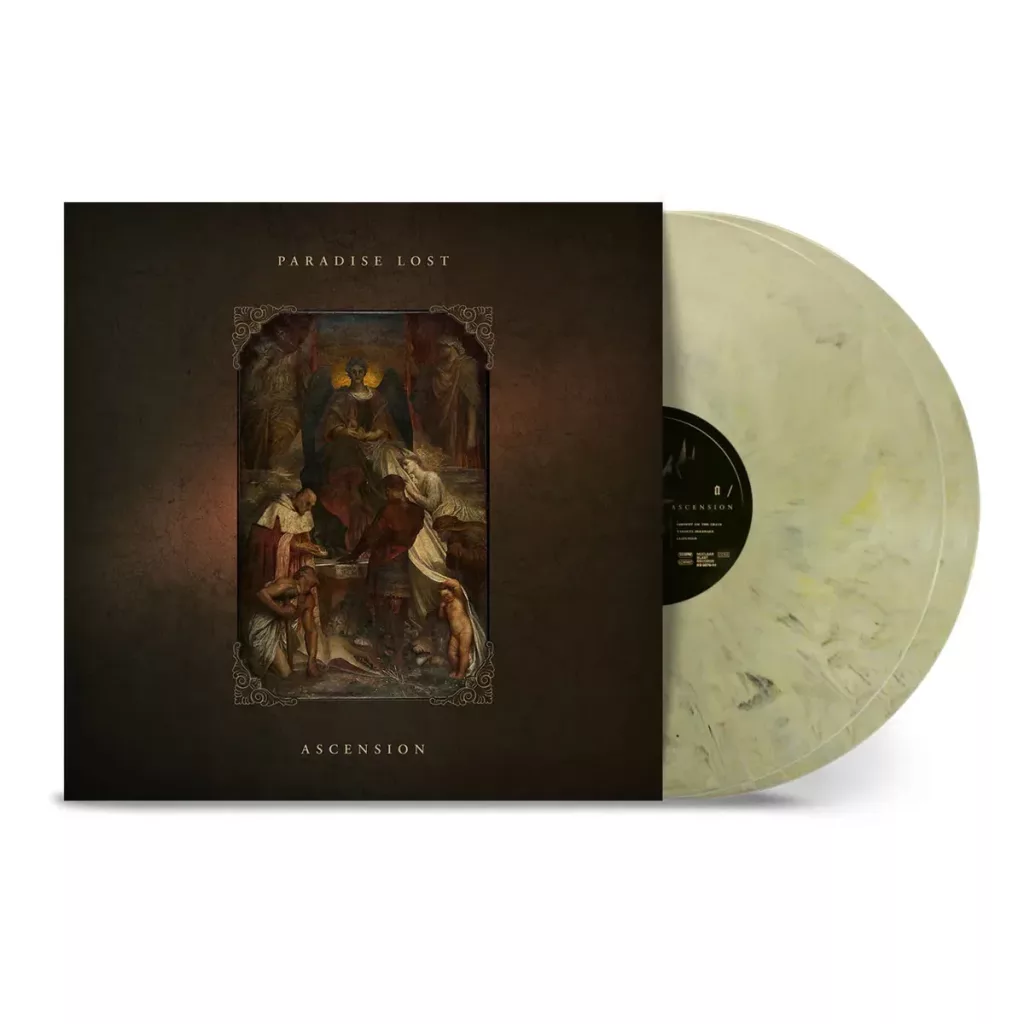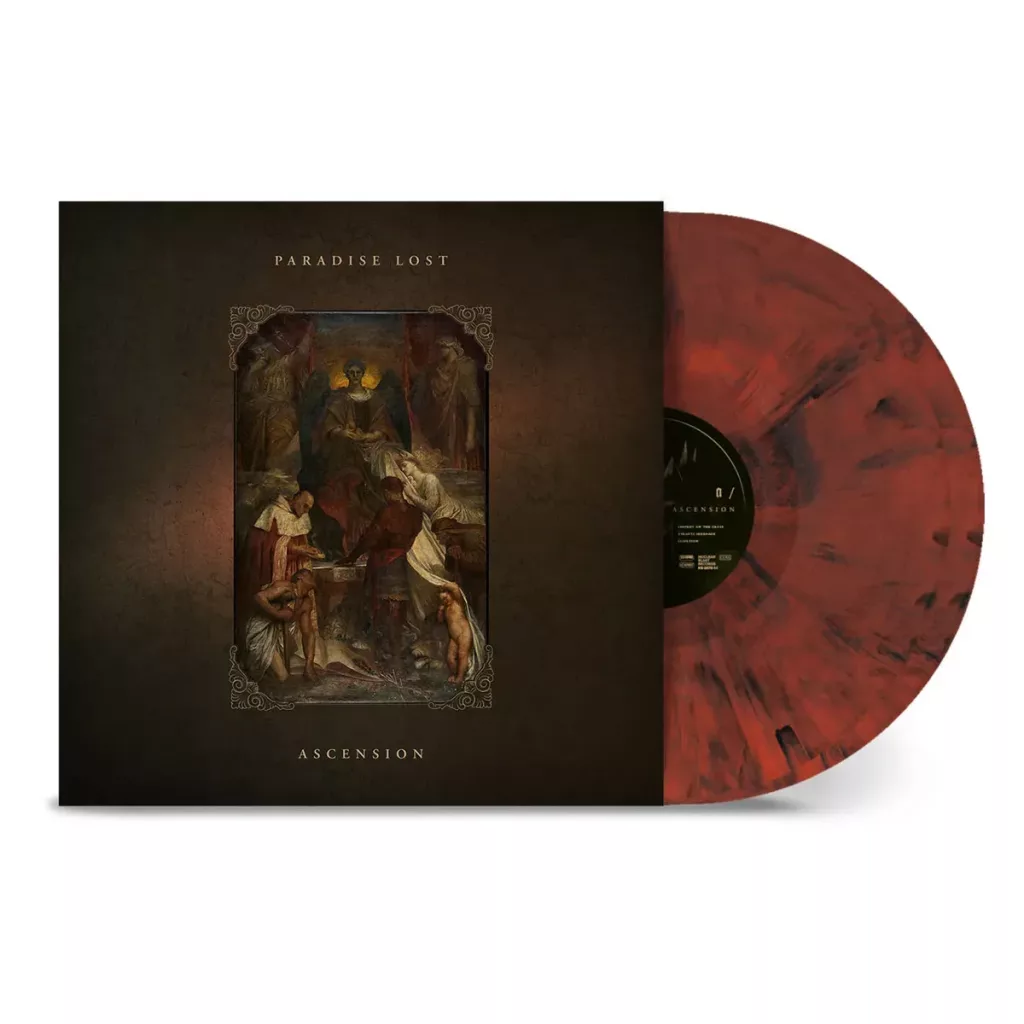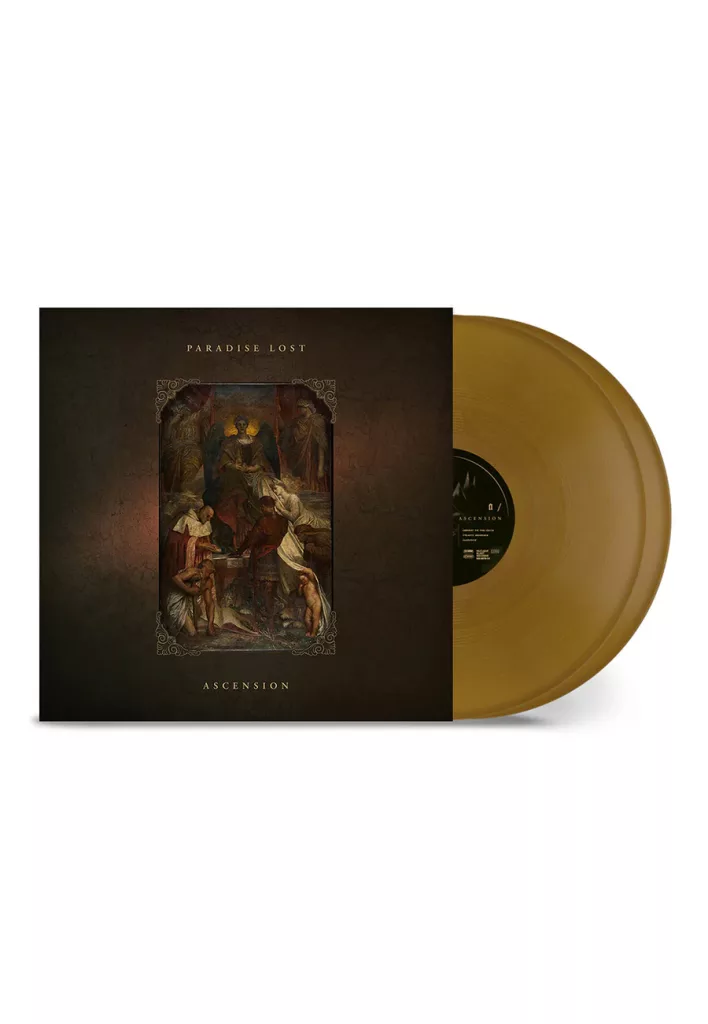Review: Paradise Lost – Ascension

“Ascension” arrives not as a thunderous revelation but as a heavy exhalation from decades of sorrow and melody. Paradise Lost seem older now, their voices roughed by time, their riffs carved deeper by memory. This is a record made by veterans aware of their scars, neither chasing youth nor fleeing it. It is an album of meditation and struggle, of gothic archways under storm-cloud skies, not of resurrection or loud epiphany.
The album opens with “Serpent on the Cross,” a doom-laden gate swung open with brooding guitars and clean-harsh vocal interplay. It signals what’s to come: grand chords, mournful leads, and tracks that stretch just long enough to build atmosphere without tipping into excess. Moments like “Tyrants Serenade” and “Silence Like the Grave” reveal strengths. The contrasts between clean melodies and abrasive vocal snarls are well handled, as is the layering of bass and drums that keep things grounded even when guitars soar.
Yet, for all its ambition, “Ascension” often retreats into familiar territory. Some songs feel like echoes of the band’s past rather than steps forward. Certain passages linger too long in the same emotional plateau – “Lay a Wreath Upon the World” drifts into balladry that lacks the bite found in the more aggressive cuts. The momentum dips in the midsection, where doom and gothic weight become comforting but also safe. It is here that Ascension loses a bit of its tension, the drive needed to elevate strong moments into unforgettable ones.
Vocals are a strong point. Nick Holmes shows range: torn between rage and lament, his cleans warm with nostalgia, his growls edged with bitterness. The interplay works when the production lets it, though at times clean and harsh clash just out of balance, leaving one or the other feeling less present. Guitar work by Gregor Mackintosh and Aaron Aedy remains tasteful: leads that burn without flamboyance, rhythm riffs that support rather than dominate. Drumming and bass provide sturdy foundations, but rarely do they surprise.
Production is polished. The mix gives room for echoing leads and thick chordal layers. Atmosphere is served: reverb, space, shadow. But in its polish lies a cost. Some of the raw edge that made earlier works visceral is less visible here; the shadows are well rendered, but they sometimes feel placed rather than wrought. The album breathes well, but occasionally the air is too clean for the kind of desperation at its heart.
Despite these reservations, “Ascension” delivers when it leans into its gothic, doom heritage. Closing songs like “The Precipice” carry weight, serving as reminders of what Paradise Lost can do when their aesthetic and emotional intensity align. The artwork, the symbolism, the tone, all contribute to an album that feels thoughtful more than forceful.
“Ascension” is strong, atmospheric, and emotionally resonant. It is not without its lulls and too-safe zones, but it also proves this band still has depth, still has voice, still has the capacity to walk through darkness and speak. Fans will find solace here; those looking for radical change may find the familiar comforting enough, yet not fully surprising.


